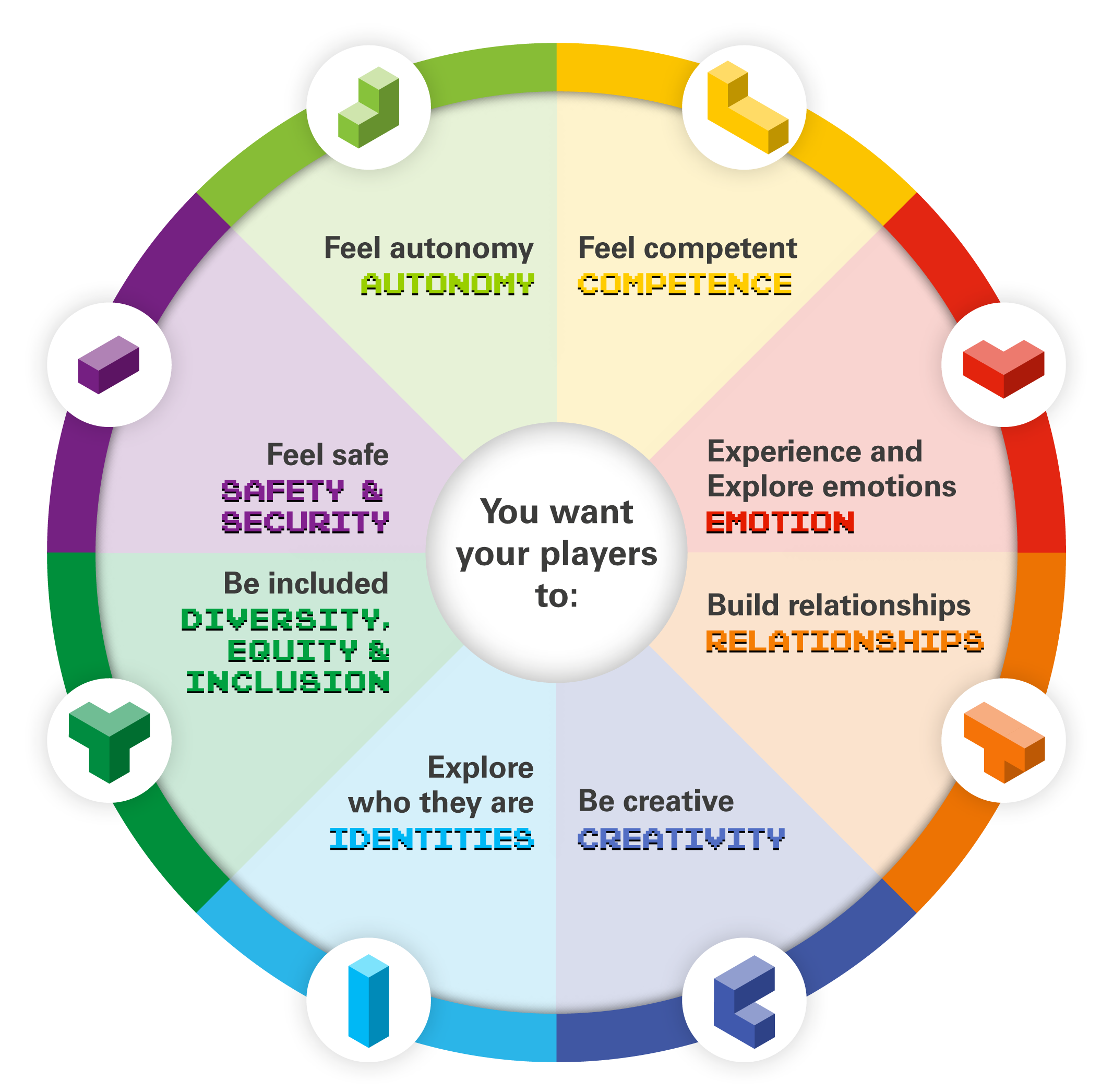
LEGO & UNICEF team up
Share
The LEGO Group is partnering with UNICEF to launch a design toolbox to enable the digital games industry to promote children's wellbeing in digital play.
Children's needs and voices have historically been overlooked in the online world, despite technology playing a growing role in their formative years.
UNICEF-led research involving more than 750 children around the world shows that digital play can make a positive and measurable contribution to children's well-being.
- New design toolbox provides free, comprehensive resources and practical information for the games industry on how to design digital play experiences with children’s well-being in mind.
- Toolbox was created through the Responsible Innovation in Technology for Children (RITEC) project, co-founded by UNICEF and the LEGO Group and funded by the LEGO Foundation.
- BILLUND, Denmark, 19 November 2024: The LEGO Group today joined UNICEF to launch a new toolbox that will help game designers embrace child wellbeing in their work, while addressing the concerns of parents and caregivers around their children’s digital gaming. The Responsible Innovation in Technology for Children (RITEC) Design Toolbox is a powerful new resource dedicated to promoting the wellbeing of children who play digitally and ensuring safe and enriching digital experiences for them.
The online world is an area where the needs and voices of children have historically been absent, despite the increasing presence of technology in children’s formative years – from how they play and learn, access information, build friendships and more. The LEGO Group and UNICEF recognise the importance of designing digital games that are playful and enhance children’s wellbeing. With the launch of the RITEC Design Toolbox, the LEGO Group and UNICEF are calling on businesses and game developers to put children at the centre of digital design.
Anna Rafferty, Senior Vice President of Digital Consumer Engagement, the LEGO Group said: “While the online world offers endless possibilities for children, we understand that it can also raise concerns for parents. In an era where children are increasingly engaging with digital technologies, the need for robust guidance to protect their wellbeing has never been greater. We know that the digital games industry is grappling with the challenges of understanding how best to design digital technology to promote children’s wellbeing. We remain committed to creating safe and enriching digital environments for children and are therefore pleased that the RITEC Design Toolbox is available for free to all. We call on games companies and businesses to make this a priority when creating digital play experiences.”
The RITEC Design Toolbox
The RITEC Design Toolbox was developed based on the findings of extensive research led by UNICEF Innocenti – Global Office of Research and Foresight, involving five research institutions and more than 750 children worldwide.
This set of free resources is available here for all game developers, designers and companies and has been developed by UNICEF to provide practical advice and information for the games industry. Co-authored by digital game design teams from around the world, it expands game design features and examples from apps and games identified during the RITEC research. The toolbox is now available for use by design professionals, including product, visual, UX and research, as well as trust and safety professionals supporting the online game design process.
The free resources provide practical tools, including:
An interactive card game with game design features that can help promote wellbeing in digital play.
Printable posters for home/office with the framework and visual examples of the guidelines.
Quotes and examples from children recorded during play experiences.
A shared vocabulary for game designers to discuss both children's needs and desires for well-being, and online gaming features to promote it.
A summary for executives that highlights the business case of designing for well-being.
Design guidelines to ensure that factors important for promoting wellbeing, such as autonomy; competence; emotional regulation; relationships; creativity; identities; diversity, equity and inclusion and safety and security, will be an outcome of digital play (as identified by the RITEC 8 framework).

Ida Hyllested, UNICEF Senior Advisor on Child Rights and Business said:
"The UNICEF-led research shows that digital play experiences can support children's well-being, if they are designed well. The RITEC Design Toolbox can make it easier for game designers to implement the findings of this research into their work and design digital play experiences that support children's well-being."
Corinne Brenner, Director of Learning at Killer Snails and involved in the RITEC research project said:
“While children will certainly benefit from designers and creatives incorporating this toolkit into their work, I hope that the RITEC-8 work also demonstrates the positive characteristics of digital play to parents, teachers, and adults who are still hesitant. Digital play can be hugely beneficial for children when experiences are well designed.”
Extensive research into digital gaming experiences
Earlier this year, UNICEF and the LEGO Group, in collaboration with other partners, unveiled the results of a three-year study by UNICEF that found that digital play experiences can contribute to and support children's well-being when designed well.
The research identified eight child-focused wellbeing outcomes, including autonomy, creativity, safety and security, and more. Designing for wellbeing is about allowing children to experience a sense of control, agency, and mastery and feelings of achievement. When designed well, games can also help children regulate their emotions, feel connected to others, and find joy in creating, exploring, and executing new ideas. These kinds of experiences are vital to children’s wellbeing and can even support their development.
This research was conducted as part of the RITEC project, an international collaboration between organisations that believe that the design and development of digital technology should support the rights and wellbeing of children. The project was co-founded by UNICEF and the LEGO Group and is funded by the LEGO Foundation. The research was conducted in partnership with Western Sydney University, University of Sheffield, New York University, City University New York and Queensland University of Technology.
